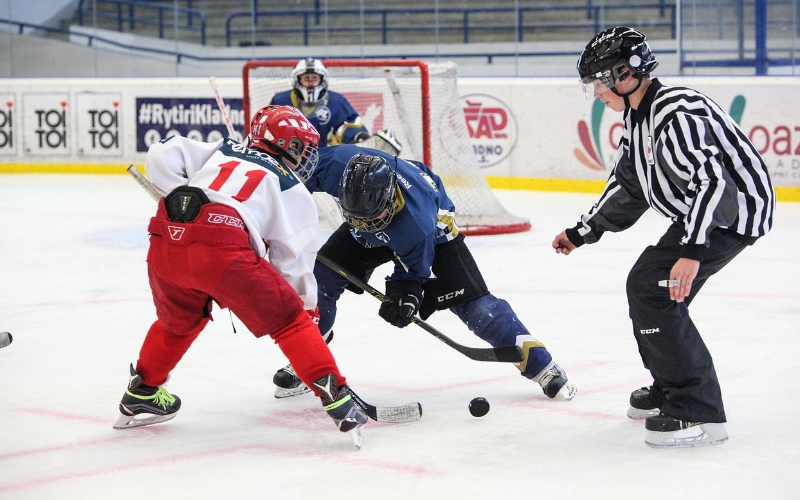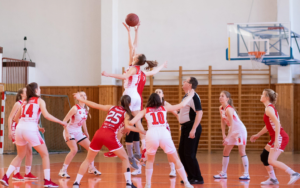The hockey game countries are playing the most and its benefits.
Hockey is a popular sport played in various countries, with different variations, such as field hockey and ice hockey. Ice hockey is particularly popular in countries with colder climates, while field hockey is played in a broader range of regions. Here’s a brief overview:
Canada: Ice hockey is deeply rooted in Canadian culture, and Canada is considered a powerhouse in international ice hockey competitions. The National Hockey League (NHL), one of the premier professional ice hockey leagues, is based in North America, with many teams from the United States and Canada.
United States: Ice hockey has a strong following in the United States, and the NHL is a major professional sports league. The U.S. has a competitive national team participating in international competitions, including the Winter Olympics.
Russia: Russia has a rich history in ice hockey, and the sport is widely played and followed. Russian players have a strong presence in the NHL, and the national team competes at a high level in international events.
Sweden, Finland, Czech Republic, and Slovakia: These European countries also have strong ice hockey traditions, and their national teams consistently perform well on the international stage.
Netherlands: Field hockey is very popular in the Netherlands, and the country has a strong tradition of success in both men’s and women’s field hockey. The Dutch national teams are among the best in the world.
India: Field hockey has a rich history in India, and the country has enjoyed success in both men’s and women’s field hockey at the international level. India has won multiple Olympic gold medals in field hockey.
Australia, Germany, and Argentina: These countries have vital field hockey programs and consistently perform well in international competitions.
Benefits of Hockey: Playing hockey offer various physical, mental, and social benefits, including:
- Physical Fitness: Hockey involves intense physical activity, promoting cardiovascular health, strength, endurance, and agility.
- Teamwork and Cooperation: Hockey is a team sport that requires players to work together, fostering communication, cooperation, and teamwork skills.
- Discipline and Focus: Playing hockey requires discipline and focus, as players must follow rules and strategies and maintain concentration throughout the game.
- Social Interaction: Participation in hockey fosters social interactions, camaraderie, and a sense of community among players, coaches, and fans.
- Mental Toughness: Hockey is a fast-paced and dynamic sport that helps players develop mental toughness, resilience, and the ability to handle pressure.
- Coordination and Motor Skills: The sport involves complex movements, enhancing coordination, balance, and overall motor skills.
Whether ice hockey or field hockey, the sport contributes to developing various life skills and promotes a healthy and active lifestyle.
Hockey’s contribution to human development
Hockey, whether ice hockey or field hockey, contributes to human development in several ways, encompassing physical, mental, and social aspects. Here are some critical contributions of hockey to human development:
Cardiovascular Health: Hockey involves continuous movement, which helps improve cardiovascular fitness, reducing the risk of heart-related issues.
Strength and Endurance: The sport requires bursts of speed, sudden stops, and changes in direction, contributing to overall strength and endurance.
Fine and Gross Motor Skills: Hockey involves precise stick handling, passing, and shooting, improving fine motor skills. Additionally, the game’s dynamic nature enhances gross motor skills and coordination.
Collaboration: Hockey is a team sport that necessitates cooperation and collaboration. Players learn to work together to achieve common goals, fostering teamwork and communication skills.
Leadership: Players can develop leadership skills and learn to guide and motivate their teammates through roles like team captain or positional responsibilities.
Rule Adherence: Hockey has a set of rules that players must follow. Adhering to these rules instills discipline and a sense of fair play.
Concentration: The game’s fast-paced nature requires players to stay focused, enhancing their ability to concentrate and make quick decisions under pressure.
Resilience: Hockey often involves setbacks like conceding goals or facing tough opponents. Overcoming challenges, build strength and mental toughness.
Handling Pressure: Playing in competitive environments teaches players how to manage stress and pressure effectively.
Friendship and Camaraderie: Hockey provides opportunities for social interaction, fostering friendships, and a sense of belonging within a team.
Community Engagement: Involvement in hockey communities, whether locally or nationally, promotes a sense of community and shared identity among players and fans.
Physical Activity: Playing hockey encourages regular physical activity, promoting a healthy lifestyle and reducing the risk of sedentary behaviors.
Nutritional Awareness: Athletes often develop an understanding of the importance of nutrition to support their performance and recovery.
Time Management: Balancing training, matches, and other commitments helps players develop practical time management skills.
Goal Setting: Setting and achieving individual and team goals in hockey can translate into goal-setting skills in various aspects of life.
Overall, hockey’s multifaceted nature contributes to holistic human development, impacting physical health, mental well-being, and the development of valuable life skills. Whether played at a recreational or competitive level, hockey provides individuals a platform to grow and thrive on and off the field.




